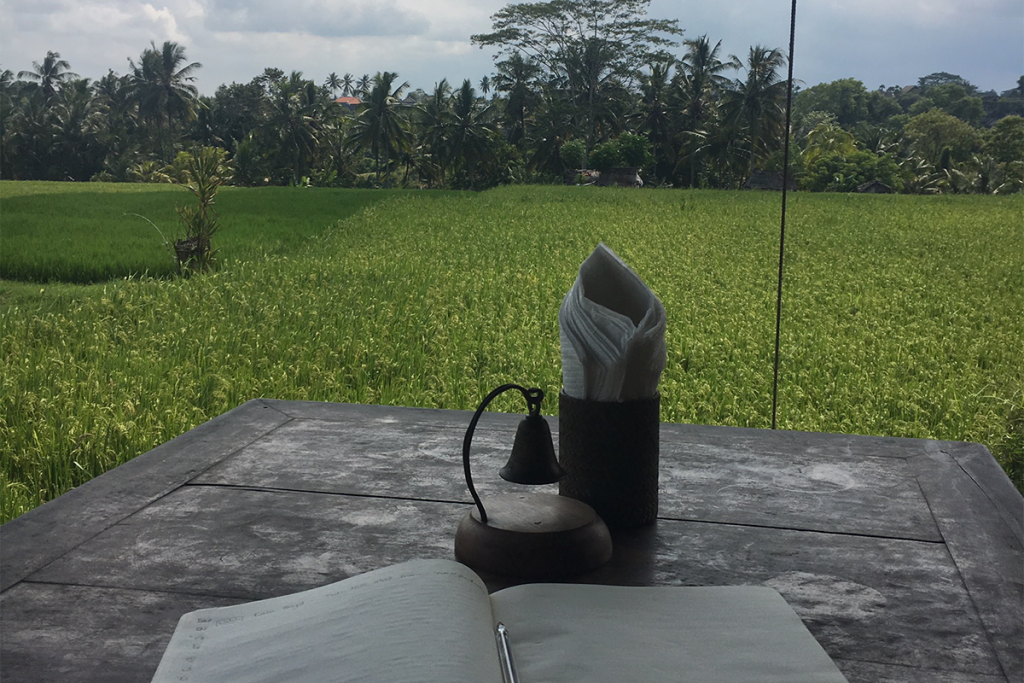Lyndall Farley: Supporting People on their Sabbatical Journey
We spoke recently with Lyndall Farley, founder of Beyond a Break, who thrives on living a “sabbatical life.” Her chosen rhythm of focused hard work with time off to recharge has given her a unique perspective on the personal and professional benefits of taking a sabbatical.
By the time she took her tenth leave, so many people were asking her how she manages it that she made the decision to start Beyond a Break. Her company supports people and organizations to use the power of time off to recharge and transform lives. Beyond a Break provides coaching for individuals, workshops and consulting to organizations to help them launch sabbatical programs that improve employee wellbeing.
Why Do You Take Sabbatical Leave?
SabbaticalHomes (SH): It’s so nice to talk with you about a subject so close to our hearts! Please tell us about your background and why you launched Beyond a Break.
Beyond a Break (BAB): I’ve taken 10 sabbaticals, so I understand the fear and doubt people have in taking a step back from work. I’ve also seen first-hand the power of a sabbatical in being a catalyst for change.
When you take a break to recharge and do something you love, life comes into focus and what’s next for you becomes clear. When you return, you’ve also then got the energy and motivation to make changes happen. That can be anything from living a healthier lifestyle, to retraining for a new career opportunity.
The idea for Beyond a Break was born on my 8th sabbatical. I was being approached by people who wanted help navigating the sabbatical journey and wanted to learn from my experience.
At the same time, I was hearing of all the barriers companies were putting in their way. I’d also experienced the difficulty in getting time off without it damaging my career. I realized that organizations were either not leveraging the power of sabbaticals to support employee wellbeing, or doing a terrible job of it! I want to solve this problem so that more people could benefit from the sabbatical experience.
Related: Reasons to Take a Sabbatical
Why Are Sabbaticals Important?

SH: What led you to making sabbaticals a priority in the flow of your career?
BAB: It wasn’t until sabbatical number 7 that I had the word “sabbatical” to describe the pattern I’d followed in my adult life. I’d always push hard for a goal, achieve it, then get bored, wonder what was next or be so tired I couldn’t make decisions. I also wanted to travel to see the world and experience different walks of life.
So, after a period of hard work, I’d take a few months off to do and see something completely different in the world. While I was out there living my passion, I’d get all my energy back and suddenly know what I wanted to do next. Now, I understand the power of giving myself this recharge time and I live what I call a “sabbatical life,” taking strategic breaks to keep me recharged, focused, productive and happy.
SH: How has this time off benefited your career or affected your business or personal outlook?
BAB: I’ve already had several career phases. I started off in Public Relations, then refocused to Marketing, then ended up in Management Consulting for 10 years at KPMG before I started Beyond a Break.
Between all these, my sabbaticals were critical in helping me realise when it was time for a change. When I was away from the “daily grind,” everything came into focus. Now I use sabbaticals to keep me happy and healthy, so I can give my best to my clients.
Related: Meet the Master of Sabbatical Connections
How Long is a Sabbatical For You?

SH: How long are your sabbaticals, generally?
BAB: I’ve taken sabbaticals ranging from 1 month to a year. The length of a sabbatical is different country to country. My general rule is that a sabbatical is double the length of your annual leave allowance. In America, where annual leave is only 2 weeks, sabbaticals are most commonly one month. In Europe where 6 weeks of annual leave is common, sabbaticals are generally 3-6 months.
SH: This is especially noteworthy to us, since so many of our members are academics, and sabbaticals for tenured faculty are built into the structure of the job. Usually academics have 1 year off for every 7 years worked or sometimes now, 6 months off for every 3 and a half years worked.
It’s interesting to think of a sabbatical as feeling like a sabbatical when a person has double their normal annual vacation time; it makes it seem more like a possibility for everyone.
How Do Sabbaticals Work For You?

SH: Do you usually rest and recharge or dive into a project on sabbatical?
BAB: My sabbaticals usually have a couple of phases to them. There’s been quite a lot of research that’s been done into what qualities must be included in a break for it to recharge you.
It needs to include four key things, and I try to plan these elements into different phases of my time off so that it’s truly rejuvenating:
- relaxation
- control – over my time and schedule
- the ability to detach from work and step out of my normal routine
- nourishing my body and mind, being healthy and feeding my mind with mastery activities like yoga or learning something new
SH: Do you have a favorite location or purpose in your past travels?
BAB: My sabbaticals have taken me to all 7 continents and over 60 countries. It’s hard to pick one! But some of the standout sabbaticals have been traveling around South America for 5 months and getting the chance to go to Antarctica.
Another favorite was living in a digital nomad community in Bali for a month while the concepts for Beyond a Break were forming in my mind.

SH: Wow, what is a digital nomad community, and how did that come about?
BAB: The company is called Roam and they’ve got co-living and co-working properties all around the world. It attracts lots of digital nomads as well as people wanting a more authentic travel experience. I stayed in their property in Ubud, Bali for a month. It was fantastic to be surrounded by inspiring people who really understood my passion and drive to create Beyond a Break.
SH: That does sound like an incredible experience! You have traveled so much, how do you manage your family and social obligations and relationships while on sabbatical? Are the people in your life understanding and supportive?
BAB: I live in Amsterdam surrounded by expats who also love travelling so my friends think the sabbatical life is great! My husband usually joins me for part of the time. We love to travel together, but we also love having solo travel time. Solo travel is a totally different way to travel and you meet more people and experience things in a different way.
My family lives in Australia so my sabbaticals have meant I could spend quality time with them despite the distance between our homes.
SH: That is the perfect set up for enjoying the rhythm of working hard and taking meaningful breaks.
Related: 5 Ways to Learn on the Go
What Is Your Vision for Beyond a Break?

SH: You said that your time in Bali helped solidify what you wanted to accomplish with your company. What is your vision for Beyond a Break?
BAB: Beyond a Break is all about helping people use a sabbatical as a catalyst for change. A sabbatical allows people to recharge so they can come back with the energy and clarity to move forward with what’s next for them.
By providing coaching and individual support, we’re helping people make the most of their leave and supporting them on the post-sabbatical transformation. It’s also really important to support people by removing the common barrier to people deciding to take a sabbatical – their jobs.
By helping organizations implement sabbatical programs that support employees to self-managing their own wellbeing, Beyond a Break will reach more people and change more lives.
SH: That is so true for many in the corporate world, and such a smart strategic decision for you to work with the organizations to affect their policies around this.
What are Common Experiences for People going on Sabbatical?

SH: Since many of our members are academics and scholars, what common experiences do you see for them versus those in the corporate world? Do you think planning the sabbatical focus is similar for both groups?
BAB: Academics are often better than corporate employees at planning their sabbatical and what they will focus on. It’s common to have a research focus and that provides a structure to the sabbatical. Corporate employees going on sabbatical can often find it difficult to decide what to do on sabbatical and fall into the trap of trying to ‘do it all’, risking returning more tired than when they left.
What academics can learn from corporate employees is that you don’t (and shouldn’t) be productive all the time on sabbatical. Give yourself time to just be, wander, get lost, allow time for creative ideas to spark. Trying to be productive on sabbatical can have the opposite effect.
SH: How do both academics and corporate employees manage “re-entry” after the sabbatical, i.e. maintaining some of the positive benefits once back to a normal routine?
BAB: Re-entry is difficult for everyone. What makes it easier is to make a plan for what the first few weeks at home will look like. Give yourself at least a few days to ‘land’ back in your home before going back to work.
Be kind with yourself as you adjust and give yourself time to process the experience that’s just completed. Be clear on any changes you want to make in your life or work and have some support in place to help you make it happen.
I also tell returners not to assume that people will want to hear all about your sabbatical adventures. Some will, some won’t. Be willing to tell your story to people genuinely interested and consider your role in helping to inspire people to take their own sabbatical if they haven’t.
SH: What good advice; many people probably spend a lot more time thinking about and planning for their sabbatical upfront and forget about the time afterwards.
Related: Taking a Sabbatical? What You Need to Know
How Can Beyond a Break Affect Change?

SH: What are some ways you help companies and people understand the value of a sabbatical and negotiate a sabbatical?
BAB: The Beyond a Break Sabbatical Stories are one of the most popular ways to help people find inspiration and courage to go on sabbatical. People see themselves in the stories, hear the barriers that were overcome and can then see a path for themselves.
We have a number of free tools that help people with the practical aspects of planning a sabbatical, including a sabbatical cost calculator showing you just how affordable a sabbatical can be and how to use your assets to fund your sabbatical.
We have also created a sabbatical pitch pack that helps you present your sabbatical request in a compelling way. There’s also the Sabbatical Purpose Matrix to help you get crystal clear on where you’re at and what you need from your sabbatical.
Companies looking to implement a sabbatical program should consider the benefits for employee engagement, attraction and retention. It also helps with giving employees a wellbeing boost and preventing burnout. CFO’s also love that it helps to reduce leave balances. Read more about all the benefits here.
Will You Talk to Us about Work-Life Balance?

SH: We regularly talk to academic partners and hear that so many are focused on work-life balance. How do you work with companies to help them create policies so there is a structure for their employees to take a sabbatical? This is interesting to us since the structure of taking sabbaticals is built-in to a tenured academic’s life once he or she has tenure.
BAB: In our busy lives and careers, wellbeing and mental health has never been more important. This is common to academics and corporate employees.
Companies and education institutions need to be clear on why they are offering a sabbatical program and ensure it is implemented in a sustainable way. If they just create a policy but don’t create a culture where people feel safe to go on sabbatical to recharge, the benefits won’t be realized.
We have an implementation process for companies to make sure they get the program design, culture change and communication right. Find out more on how we can support your organization or simply get in touch to discuss your needs.
SH: This is so valuable! We are clearly believers in sabbaticals being one of the great solutions to balancing our professional and personal lives. We are so happy to share your experience of “living a sabbatical life” and starting Beyond a Break to help others do the same.
We enjoy catching up with our notable members and partners. It’s always interesting to write about their multifaceted adventures and accomplishments. Do you have a Sabbatical Homes story you’d like to share? Let us know what you think! Connect with us on Twitter, LinkedIn, Facebook, Instagram, YouTube and Pinterest.


